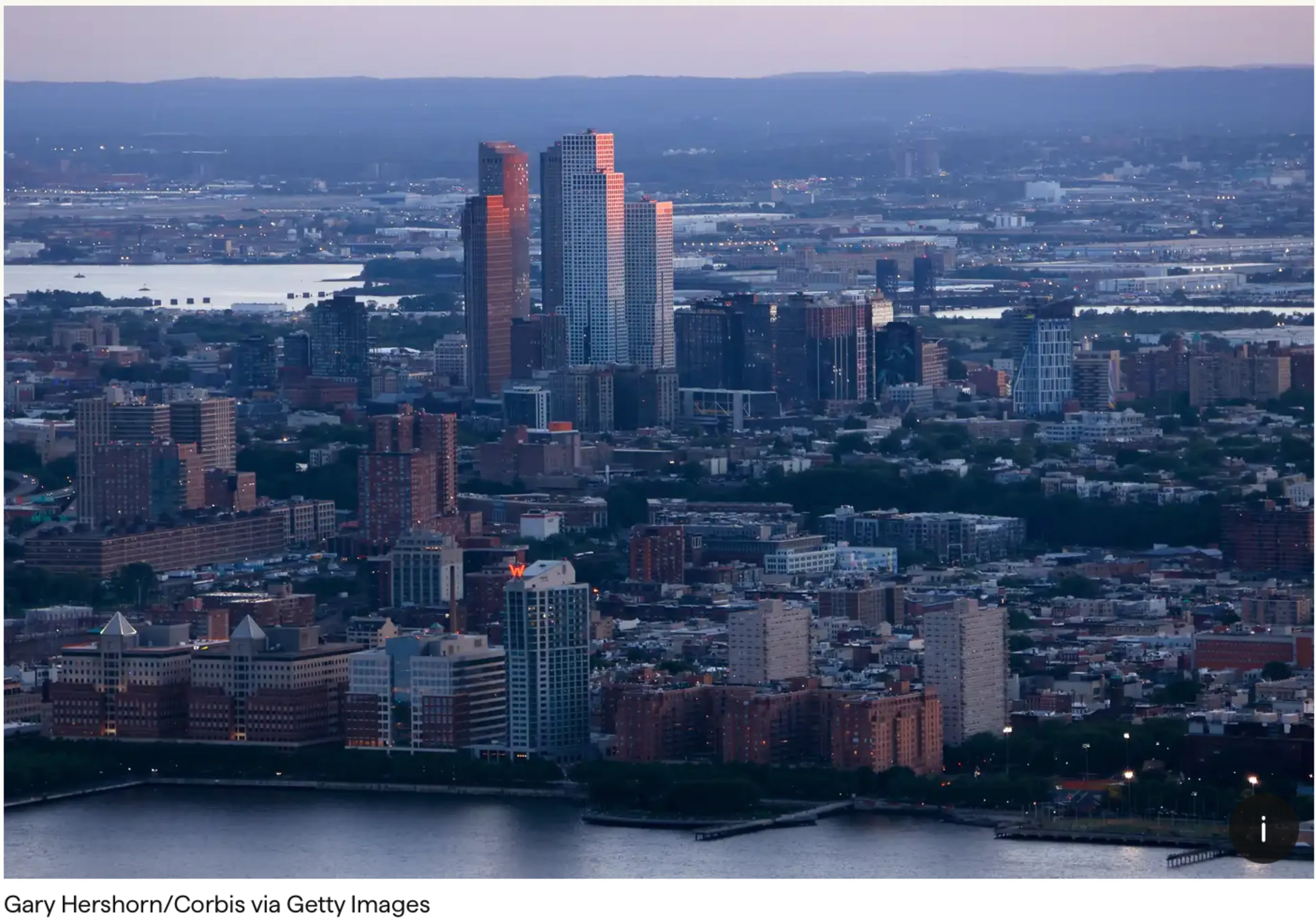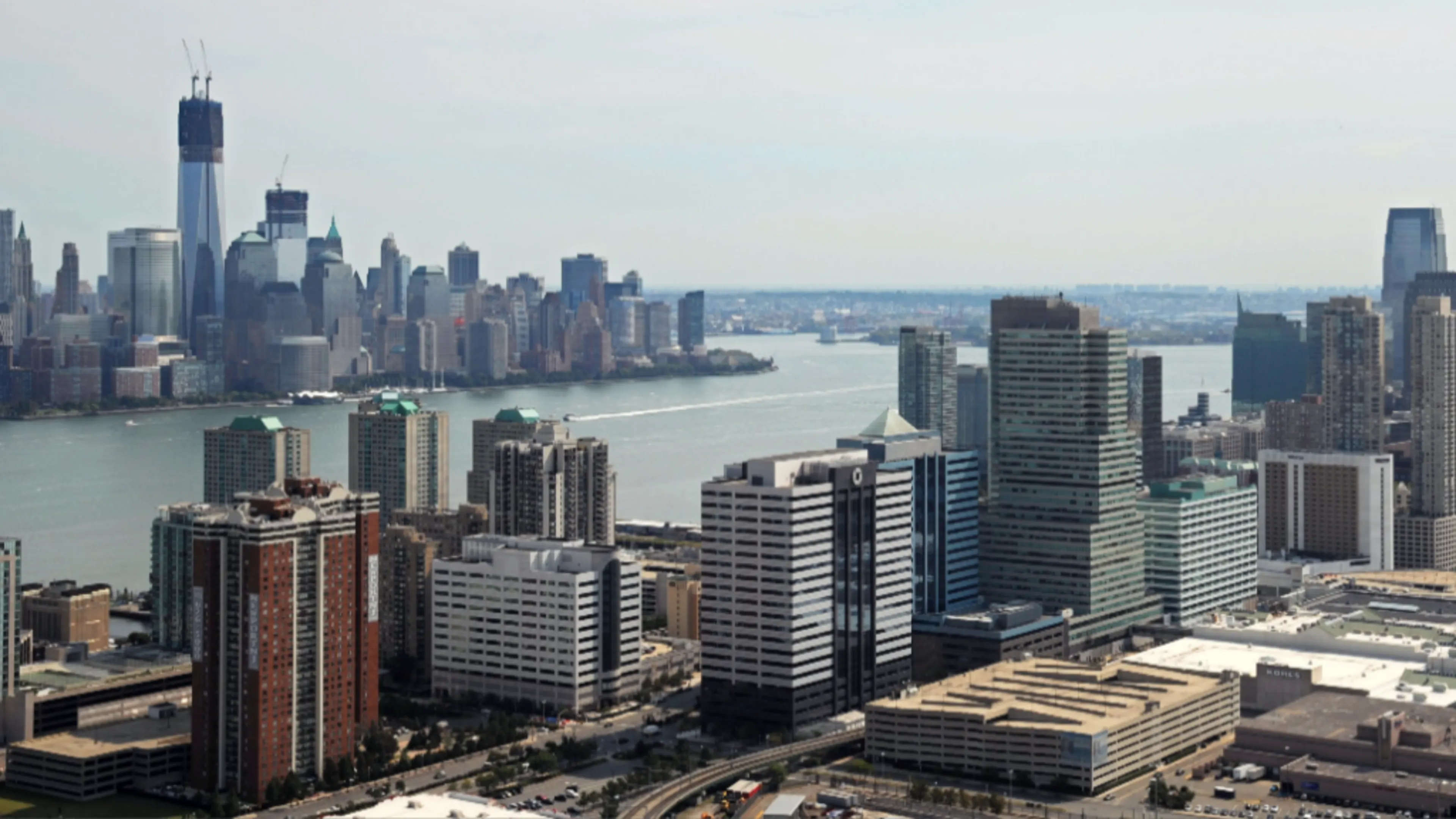NJBIZ: Jersey City developer pushes for affordable housing reform
Put two New Jerseyans in a room and the pair will quickly begin debating, arguing and – ultimately – resignedly complaining about how expensive it is to live here. High costs, especially for housing, tend to drive many conversations in the state. And affordability is at the center of most political campaigns, including the gubernatorial race heating up right now.
Jersey City has been at the center of many such discussions, even as the Gold Coast locale enjoys a construction boom. Making sure all residents benefit from development remains a significant concern — in Jersey City and anywhere else that ground is broken.
Ben LoPiccolo knows the issue inside and out. He is the founder of the Ben LoPiccolo Development Group – or BLDG-UP – a real estate investment advisory and consulting firm based in Jersey City. And he is president of the Jersey City Apartment Owners Association, an advocacy group.
The developer started out in Manhattan but soon realized that Jersey City offered perhaps more opportunities. “I started by flipping historical homes in a small area called Hamilton Park, Jersey City, which is near the waterfront. And, and then from there, I did a few dozen historic homes, fixed them, flipped them. … And I grew that business from house flipping to building new construction.”
LoPiccolo recently sat down with NJBIZ to talk about what’s going on in Jersey City and how the state can encourage development of more affordable housing. What follows is an abridged version of that discussion. The questions and answers have been edited for length and clarity. A video version of the full interview is available at NJBIZ.com/njbizconversations.
NJBIZ: Refresh our memories about what Jersey City was like in 1998 when you moved over. Today it seems to be a thriving city that’s attracting visitors and people moving out from Manhattan. What was the difference between Manhattan and Jersey City back then? Did you look over at Jersey City and see what was coming down the road?
Ben LoPiccolo: Jersey City back then, quite frankly — I grew up in Hackensack, N.J., and Jersey City was not a place you would go to, because New Jersey looked at it as a slum back then. And for New Yorkers, a lot of people didn’t even know what Jersey City was.
So, when I came into it, there were a lot of areas that were beaten down, that needed a lot of work, and I didn’t know that Jersey City was a place to invest until somebody came to me and said, ‘Hey, Ben, there’s this area in Jersey City, the government is working on a redevelopment plan, you should look into it.’ And when I first came here, I saw the proximity to New York and how easy it was to access. And I just saw the opportunity because of the accessibility. If you stood in downtown Jersey City, you looked at the waterfront, it almost appeared that you were in New York.
Q: It can feel that way, especially if you’re, as you say, on the waterfront. So, how’s it worked out for you? I’m guessing pretty well.
A: Yes, absolutely, very good. And you know, back then, you could start to see development happening. When I first got here, the waterfront only had two buildings on it, two high-rise buildings. And a lot of it was warehouses – dilapidated warehouses – a lot of industrial properties. And over the years, from 1998 until now, you could see a very fast progression of development. There’s just been tens of thousands of real estate units coming on the market, so it’s just been tremendous growth.
Q: Now, I want to talk about affordable housing. That’s been an issue in this state, in Jersey City and around the country. It’s not unique to this area. And there’s a mayoral race going on in Jersey City and development is an issue there. From your perspective, first of all, how difficult is it to actually supply safe and affordable housing options, and if so, why? What are the obstacles?
A: Well, there’s a lot of hurdles that developers have to go through to develop real estate, especially today. We have, from construction costs to interest rates that are very high right now, that, financially makes it very difficult. On top of that, we have to deal with governmental hurdles.
And it’s only gotten worse over the years. There’s a lot of rhetoric that goes on in politics, where, you know, developers are painted as the bad guys in a room. We’re the ones that are causing things to get more and more expensive. But the reality is that it’s become more and more difficult to build. And that difficulty has made it has made the supply shrink.
As the supply is shrinking, and the demand keeps growing, Jersey City keeps getting more and more expensive. And as a whole, New Jersey is getting more and more expensive.
Q: And that’s what I wanted to get at, because there will be critics who say if it’s so expensive to build, why are all those high-rises going up? But the question is, are they meeting the demand that’s there? And that’s what I think you’re getting to, is the tension between supply and demand. How do you rebalance that? What are the most important steps you think policymakers – either on a state, local, county level – need to take to rebalance that supply and demand, to get the supply to where it meets the demand?
A: So, right now, like you said, there’s a mayoral race going on, there’s also a governor’s race going on. An NJBIZ article I recently read, it’s titled, “Mikie Sherrill pledges faster business permits and, and less red tape,”where she mentions, three pillars. A change to the culture in Trenton, to consumer service-focused agencies. Making it easier to start a business by reducing delays and fees. And creating fast-track team in the governor’s office to cut through red tape and bottlenecks.
I would add a fourth pillar to that. And that fourth pillar would be to just make it easier to build homes that people can afford.
And the conversation needs to be about supply and demand. There’s a lot of things we can do in government where we can make the process of developing and owning real estate a lot easier for developers and property owners, so it incentivizes them to just build more.
And we’re not talking about building a certain type of housing. I’m talking about building all types of housing, because the reality is, is that if you’re not building – whether it’s luxury housing, middle-class housing or low-income housing – people who are not able to find luxury housing, for example, on the waterfront, will find a way to move somewhere in and around Jersey City and take up the affordable housing stock.
So, housing is housing. You need to make it affordable by reducing the regulations as much as possible.
Q: OK, we’ve heard the litany of how difficult it is to get permits, how long it takes, the stringent environmental regulations, are those the kinds of things you’re talking about?
A: Right, zoning and planning, for example. Right now, I’m about to break ground on a 70-unit project. And it took us five years to get to breaking ground on a 70-unit project. It shouldn’t take that long to break ground in a city like Jersey City.
When I came here back in 1998, it was a lot faster. We were breaking ground within a year, so that process has gotten very lengthy.
That’s just one example. Other examples could include, the state passed a regulation where state inspectors can come in and supplement Jersey City inspectors if they’re understaffed, and there’s not enough inspectors. If they don’t show up within 72 hours, developers can hire their own inspectors and get through the inspection process.
Developers are afraid to use them, because the building department has expressed that they don’t want private inspectors to be, getting into, that process. There are DEP [Department of Environmental Protection] regulations that could be less burdensome. There are many things that we can do to just make the process a lot easier and more streamlined.
Q: Politicians aren’t the only hurdles that you face. New Jersey has a strong tradition of home rule. That means that folks in towns very often are wary of development. You alluded to that earlier. How do you overcome that kind of resistance, that NIMBYism, as it were, to increasing density and providing the kind of supply that’s necessary to have those affordable options?
A: That’s a great question. You know, at the JCAOA, we advocate and represent property owners, developers and taxpayers, and at the same time we also think about affordable housing, and how we can build more affordable housing — but do it responsibly. And we do that through education. … One thing we’re doing right now is we created a JCAOA tour, where we are going out to communities and educating the public on what it takes to build housing in general, what’s the process like. Because a lot of people don’t understand what the entire process entails when it comes to real estate development.
They don’t know how difficult it is, they don’t know the cost of construction, the interest rates, all the hurdles that we have to jump through.
And the more they understand what that process, the more they begin to sympathize.
Source: https://njbiz.com/jersey-city-affordable-housing-ben-lopiccolo/
Next media
Jersey City renters push to ban application fees for affordable apartments
Now, Flores and other Jersey City residents are raising the issue of application fees with their municipal leaders and starting to get some traction, as candidates in the city’s hotly contested mayoral race express an interest in changing the process.
Sep 10, 2025

Op-Ed: Jersey City rents shrink as supply moves ahead of demand: Data proves it
In an editorial, Jersey City Apartment Owners Association Executive Director Wendy Paul presents data showing that rents in the city are decreasing.
Sep 10, 2025

NJBIZ Conversations: Wendy Paul
You can watch or listen as a podcast
Sep 10, 2025
